Summer 2024 Admissions for 1-on-1 Research Mentorship is OPEN. Watch information session recording here (featuring former and current Admission Officers at Havard and UPenn).

Discourse, debate, and analysis
Cambridge re:think essay competition 2024.
This year, CCIR saw over 4,200 submissions from more than 50 countries. Of these 4,200 essays, our jury panel, consists of scholars across the Atlantic, selected approximately 350 Honourable Mention students, and 33 award winners.
The mission of the Re:think essay competition has always been to encourage critical thinking and exploration of a wide range of thought-provoking and often controversial topics. The hope is to create a discourse capable of broadening our collective understanding and generating innovative solutions to contemporary challenges. This year’s submissions more than exceeded our expectations in terms of their depth and their critical engagement with the proposed topics. The decision process was, accordingly, difficult. After four rigorous rounds of blind review by scholars from Cambridge, Oxford, Stanford, MIT and several Ivy League universities, we have arrived at the following list of award recipients:
Competition Opens: 15th January, 2024
Essay Submission Deadline: 10th May, 2024 Result Announcement: 20th June, 2024 Award Ceremony and Dinner at the University of Cambridge: 30th July, 2024
We welcome talented high school students from diverse educational settings worldwide to contribute their unique perspectives to the competition.
Entry to the competition is free.
About the Competition
The spirit of the Re:think essay competition is to encourage critical thinking and exploration of a wide range of thought-provoking and often controversial topics. The competition covers a diverse array of subjects, from historical and present issues to speculative future scenarios. Participants are invited to engage deeply with these topics, critically analysing their various facets and implications. It promotes intellectual exploration and encourages participants to challenge established norms and beliefs, presenting opportunities to envision alternative futures, consider the consequences of new technologies, and reevaluate longstanding traditions.
Ultimately, our aim is to create a platform for students and scholars to share their perspectives on pressing issues of the past and future, with the hope of broadening our collective understanding and generating innovative solutions to contemporary challenges. This year’s competition aims to underscore the importance of discourse, debate, and critical analysis in addressing complex societal issues in nine areas, including:
Religion and Politics
Political science and law, linguistics, environment, sociology and philosophy, business and investment, public health and sustainability, biotechonology.
Artificial Intelligence
Neuroengineering
2024 essay prompts.
This year, the essay prompts are contributed by distinguished professors from Harvard, Brown, UC Berkeley, Cambridge, Oxford, and MIT.
Essay Guidelines and Judging Criteria
Review general guidelines, format guidelines, eligibility, judging criteria.
Awards and Award Ceremony
Award winners will be invited to attend the Award Ceremony and Dinner hosted at the King’s College, University of Cambridge. The Dinner is free of charge for select award recipients.
Registration and Submission
Register a participant account today and submit your essay before the deadline.
Advisory Committee and Judging Panel
The Cambridge Re:think Essay Competition is guided by an esteemed Advisory Committee comprising distinguished academics and experts from elite universities worldwide. These committee members, drawn from prestigious institutions, such as Harvard, Cambridge, Oxford, and MIT, bring diverse expertise in various disciplines.
They play a pivotal role in shaping the competition, contributing their insights to curate the themes and framework. Their collective knowledge and scholarly guidance ensure the competition’s relevance, academic rigour, and intellectual depth, setting the stage for aspiring minds to engage with thought-provoking topics and ideas.
We are honoured to invite the following distinguished professors to contribute to this year’s competition.
The judging panel of the competition comprises leading researchers and professors from Harvard, MIT, Stanford, Cambridge, and Oxford, engaging in a strictly double blind review process.

Keynote Speeches by 10 Nobel Laureates
We are beyond excited to announce that multiple Nobel laureates have confirmed to attend and speak at this year’s ceremony on 30th July, 2024 .
They will each be delivering a keynote speech to the attendees. Some of them distinguished speakers will speak virtually, while others will attend and present in person and attend the Reception at Cambridge.

The Official List of Re:Think 2024 Winners
Gold Recipients
- Ishan Amirthalingam, Anglo Chinese School (Independent), Singapore, Singapore
- Arnav Aphale, King Edward VI Camp Hill School for Boys Birmingham, West Midlands, United Kingdom
- Anchen Che, Shanghai Pinghe School, Shanghai China
- Chloe Huang, Westminster School, London, United Kingdom
- Rose Kim, MPW Cambridge, Cambridge, United Kingdom
- Jingyuan Li, St. Mark’s School, Southborough, United States
- Michael Noh, Korea International School, Pangyo Campus, Seoul, Korea
- Aarav Rastogi, Oberoi International School JVLR Campus, Mumbai, India
- Yuseon Song, Hickory Christian Academy, Hickory, United States
- Aiqi Yan, Basis International School Guangzhou, Guangzhou, China
Silver Recipients
- John Liu, Deerfield Academy, Deerfield, United States
- Sophie Reason, The Cheltenham Ladies College, Birmingham, United Kingdom
- Peida Han, Nanjing Foreign Language School, Nanjing, China
- Thura Linn Htet, Kolej Tuanku Ja’afar School, Negeri Sembilan, Malaysia
- Steven Wang, Radley College, Headington, United Kingdom
- Rainier Liu, Knox Grammar School, Sydney, Australia
- Anupriya Nayak, Amity International School, Saket, New Delhi, India
- Ming Min Yang, The Beacon School, New York City, United States
- Anna Zhou, Shanghai YK Pao School, Shanghai, China
- Yuyang Cui, The Williston Northampton School, Easthampton,United States
Bronze Recipients
- Giulia Marinari, Churchdown School Academy, Gloucestershire, United Kingdom
- Christina Wang, International School of Beijing, Beijing, China
- Chuhao Guo, Shenzhen Middle School, Shenzhen, China
- Isla Clayton, King’s College School Wimbledon, London, United Kingdom
- Hanqiao Li, The Experimental High School Attached to Beijing Normal University, Beijing, China
- He Hua Yip, Raffles Institution, Singapore, Singapore
- Wang Chon Chan, Macau Puiching Middle School, Macau, Macau, China
- Evan Hou, Rancho Cucamonga High School, Rancho Cucamonga, United States
- Carson Park, Seoul International School, Seongnam-si, Korea
- Sophie Eastham, King George V Sixth Form College, Liverpool, United Kingdom
The Logos Prize for Best Argument
- Ellisha Yao, German Swiss International School Hong Kong, Mong Kok, Hong Kong, China
The Pathos Prize for Best Writing
Isabelle Cox-Garleanu, Mary Institute and Saint Louis Country Day School, Frontenac, United States
The Ethos Prize for Best Research
Garrick Tan, Harrow School, Harrow on the Hill, United Kingdom
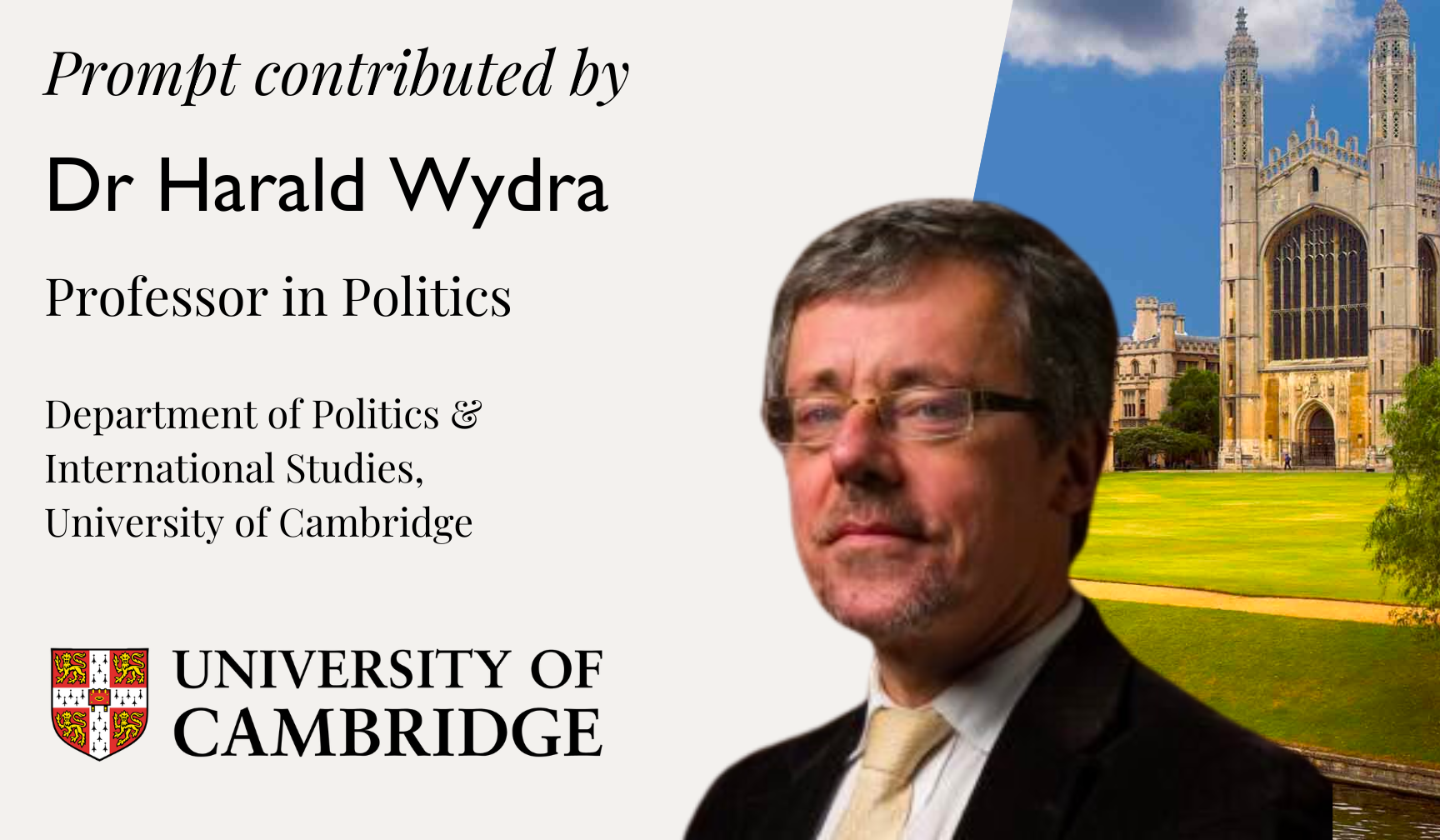
Gene therapy is a medical approach that treats or prevents disease by correcting the underlying genetic problem. Is gene therapy better than traditional medicines? What are the pros and cons of using gene therapy as a medicine? Is gene therapy justifiable?
Especially after Covid-19 mRNA vaccines, gene therapy is getting more and more interesting approach to cure. That’s why that could be interesting to think about. I believe that students will enjoy and learn a lot while they are investigating this topic.

The Hall at King’s College, Cambridge
The Hall was designed by William Wilkins in the 1820s and is considered one of the most magnificent halls of its era. The first High Table dinner in the Hall was held in February 1828, and ever since then, the splendid Hall has been where members of the college eat and where formal dinners have been held for centuries.
The Award Ceremony and Dinner will be held in the Hall in the evening of 30th July, 2024.

Stretching out down to the River Cam, the Back Lawn has one of the most iconic backdrop of King’s College Chapel.
The early evening reception will be hosted on the Back Lawn with the iconic Chapel in the background (weather permitting).

King’s College Chapel
With construction started in 1446 by Henry VI and took over a century to build, King’s College Chapel is one of the most iconic buildings in the world, and is a splendid example of late Gothic architecture.
Attendees are also granted complimentary access to the King’s College Chapel before and during the event.
Confirmed Nobel Laureates

Dr Thomas R. Cech
The nobel prize in chemistry 1989 , for the discovery of catalytic properties of rna.
Thomas Robert Cech is an American chemist who shared the 1989 Nobel Prize in Chemistry with Sidney Altman, for their discovery of the catalytic properties of RNA. Cech discovered that RNA could itself cut strands of RNA, suggesting that life might have started as RNA. He found that RNA can not only transmit instructions, but also that it can speed up the necessary reactions.
He also studied telomeres, and his lab discovered an enzyme, TERT (telomerase reverse transcriptase), which is part of the process of restoring telomeres after they are shortened during cell division.
As president of Howard Hughes Medical Institute, he promoted science education, and he teaches an undergraduate chemistry course at the University of Colorado

Sir Richard J. Roberts
The nobel prize in medicine 1993 .
F or the discovery of split genes
During 1969–1972, Sir Richard J. Roberts did postdoctoral research at Harvard University before moving to Cold Spring Harbor Laboratory, where he was hired by James Dewey Watson, a co-discoverer of the structure of DNA and a fellow Nobel laureate. In this period he also visited the MRC Laboratory of Molecular Biology for the first time, working alongside Fred Sanger. In 1977, he published his discovery of RNA splicing. In 1992, he moved to New England Biolabs. The following year, he shared a Nobel Prize with his former colleague at Cold Spring Harbor Phillip Allen Sharp.
His discovery of the alternative splicing of genes, in particular, has had a profound impact on the study and applications of molecular biology. The realisation that individual genes could exist as separate, disconnected segments within longer strands of DNA first arose in his 1977 study of adenovirus, one of the viruses responsible for causing the common cold. Robert’s research in this field resulted in a fundamental shift in our understanding of genetics, and has led to the discovery of split genes in higher organisms, including human beings.

Dr Aaron Ciechanover
The nobel prize in chemistry 2004 .
F or the discovery of ubiquitin-mediated protein degradation
Aaron Ciechanover is one of Israel’s first Nobel Laureates in science, earning his Nobel Prize in 2004 for his work in ubiquitination. He is honored for playing a central role in the history of Israel and in the history of the Technion – Israel Institute of Technology.
Dr Ciechanover is currently a Technion Distinguished Research Professor in the Ruth and Bruce Rappaport Faculty of Medicine and Research Institute at the Technion. He is a member of the Israel Academy of Sciences and Humanities, the Pontifical Academy of Sciences, the National Academy of Sciences of Ukraine, the Russian Academy of Sciences and is a foreign associate of the United States National Academy of Sciences. In 2008, he was a visiting Distinguished Chair Professor at NCKU, Taiwan. As part of Shenzhen’s 13th Five-Year Plan funding research in emerging technologies and opening “Nobel laureate research labs”, in 2018 he opened the Ciechanover Institute of Precision and Regenerative Medicine at the Chinese University of Hong Kong, Shenzhen campus.

Dr Robert Lefkowitz
The nobel prize in chemistry 2012 .
F or the discovery of G protein-coupled receptors
Robert Joseph Lefkowitz is an American physician (internist and cardiologist) and biochemist. He is best known for his discoveries that reveal the inner workings of an important family G protein-coupled receptors, for which he was awarded the 2012 Nobel Prize for Chemistry with Brian Kobilka. He is currently an Investigator with the Howard Hughes Medical Institute as well as a James B. Duke Professor of Medicine and Professor of Biochemistry and Chemistry at Duke University.
Dr Lefkowitz made a remarkable contribution in the mid-1980s when he and his colleagues cloned the gene first for the β-adrenergic receptor, and then rapidly thereafter, for a total of 8 adrenergic receptors (receptors for adrenaline and noradrenaline). This led to the seminal discovery that all GPCRs (which include the β-adrenergic receptor) have a very similar molecular structure. The structure is defined by an amino acid sequence which weaves its way back and forth across the plasma membrane seven times. Today we know that about 1,000 receptors in the human body belong to this same family. The importance of this is that all of these receptors use the same basic mechanisms so that pharmaceutical researchers now understand how to effectively target the largest receptor family in the human body. Today, as many as 30 to 50 percent of all prescription drugs are designed to “fit” like keys into the similarly structured locks of Dr Lefkowitz’ receptors—everything from anti-histamines to ulcer drugs to beta blockers that help relieve hypertension, angina and coronary disease.
Dr Lefkowitz is among the most highly cited researchers in the fields of biology, biochemistry, pharmacology, toxicology, and clinical medicine according to Thomson-ISI.

Dr Joachim Frank
The nobel prize in chemistry 2017 .
F or developing cryo-electron microscopy
Joachim Frank is a German-American biophysicist at Columbia University and a Nobel laureate. He is regarded as the founder of single-particle cryo-electron microscopy (cryo-EM), for which he shared the Nobel Prize in Chemistry in 2017 with Jacques Dubochet and Richard Henderson. He also made significant contributions to structure and function of the ribosome from bacteria and eukaryotes.
In 1975, Dr Frank was offered a position of senior research scientist in the Division of Laboratories and Research (now Wadsworth Center), New York State Department of Health,where he started working on single-particle approaches in electron microscopy. In 1985 he was appointed associate and then (1986) full professor at the newly formed Department of Biomedical Sciences of the University at Albany, State University of New York. In 1987 and 1994, he went on sabbaticals in Europe, one to work with Richard Henderson, Laboratory of Molecular Biology Medical Research Council in Cambridge and the other as a Humboldt Research Award winner with Kenneth C. Holmes, Max Planck Institute for Medical Research in Heidelberg. In 1998, Dr Frank was appointed investigator of the Howard Hughes Medical Institute (HHMI). Since 2003 he was also lecturer at Columbia University, and he joined Columbia University in 2008 as professor of Biochemistry and Molecular Biophysics and of biological sciences.

Dr Barry C. Barish
The nobel prize in physics 2017 .
For the decisive contributions to the detection of gravitational waves
Dr Barry Clark Barish is an American experimental physicist and Nobel Laureate. He is a Linde Professor of Physics, emeritus at California Institute of Technology and a leading expert on gravitational waves.
In 2017, Barish was awarded the Nobel Prize in Physics along with Rainer Weiss and Kip Thorne “for decisive contributions to the LIGO detector and the observation of gravitational waves”. He said, “I didn’t know if I would succeed. I was afraid I would fail, but because I tried, I had a breakthrough.”
In 2018, he joined the faculty at University of California, Riverside, becoming the university’s second Nobel Prize winner on the faculty.
In the fall of 2023, he joined Stony Brook University as the inaugural President’s Distinguished Endowed Chair in Physics.
In 2023, Dr Barish was awarded the National Medal of Science by President Biden in a White House ceremony.

Dr Harvey J. Alter
The nobel prize in medicine 2020 .
For the discovery of Hepatitis C virus
Dr Harvey J. Alter is an American medical researcher, virologist, physician and Nobel Prize laureate, who is best known for his work that led to the discovery of the hepatitis C virus. Alter is the former chief of the infectious disease section and the associate director for research of the Department of Transfusion Medicine at the Warren Grant Magnuson Clinical Center in the National Institutes of Health (NIH) in Bethesda, Maryland. In the mid-1970s, Alter and his research team demonstrated that most post-transfusion hepatitis cases were not due to hepatitis A or hepatitis B viruses. Working independently, Alter and Edward Tabor, a scientist at the U.S. Food and Drug Administration, proved through transmission studies in chimpanzees that a new form of hepatitis, initially called “non-A, non-B hepatitis” caused the infections, and that the causative agent was probably a virus. This work eventually led to the discovery of the hepatitis C virus in 1988, for which he shared the Nobel Prize in Physiology or Medicine in 2020 along with Michael Houghton and Charles M. Rice.
Dr Alter has received recognition for the research leading to the discovery of the virus that causes hepatitis C. He was awarded the Distinguished Service Medal, the highest award conferred to civilians in United States government public health service, and the 2000 Albert Lasker Award for Clinical Medical Research.

Dr Ardem Patapoutian
The nobel prize in medicine 2021 .
For discovering how pressure is translated into nerve impulses
Dr Ardem Patapoutian is an Lebanese-American molecular biologist, neuroscientist, and Nobel Prize laureate of Armenian descent. He is known for his work in characterising the PIEZO1, PIEZO2, and TRPM8 receptors that detect pressure, menthol, and temperature. Dr Patapoutian is a neuroscience professor and Howard Hughes Medical Institute investigator at Scripps Research in La Jolla, California. In 2021, he won the Nobel Prize in Physiology or Medicine jointly with David Julius.
Frequently Asked Questions
Why should I participate in the Re:think essay competition?
The Re:think Essay competition is meant to serve as fertile ground for honing writing skills, fostering critical thinking, and refining communication abilities. Winning or participating in reputable contests can lead to recognition, awards, scholarships, or even publication opportunities, elevating your academic profile for college applications and future endeavours. Moreover, these competitions facilitate intellectual growth by encouraging exploration of diverse topics, while also providing networking opportunities and exposure to peers, educators, and professionals. Beyond accolades, they instil confidence, prepare for higher education demands, and often allow you to contribute meaningfully to societal conversations or causes, making an impact with your ideas.
Who is eligible to enter the Re:think essay competition?
As long as you’re currently attending high school, regardless of your location or background, you’re eligible to participate. We welcome students from diverse educational settings worldwide to contribute their unique perspectives to the competition.
Is there any entry fee for the competition?
There is no entry fee for the competition. Waiving the entry fee for our essay competition demonstrates CCIR’s dedication to equity. CCIR believes everyone should have an equal chance to participate and showcase their talents, regardless of financial circumstances. Removing this barrier ensures a diverse pool of participants and emphasises merit and creativity over economic capacity, fostering a fair and inclusive environment for all contributors.
Subscribe for Competition Updates
If you are interested to receive latest information and updates of this year’s competition, please sign up here.

HIR Academic Writing Contest

The Harvard International Review is a quarterly magazine offering insight on international affairs from the perspectives of scholars, leaders, and policymakers. Since our founding in 1979, we've set out to bridge the worlds of academia and policy through outstanding writing and editorial selection.
The quality of our content is unparalleled. Each issue of the Harvard International Review includes exclusive interviews and editorials by leading international figures along with expert staff analysis of critical international issues. We have featured commentary by 43 Presidents and Prime Ministers, 4 Secretaries-General, 4 Nobel Economics Prize laureates, and 7 Nobel Peace Prize laureates.
The Contest
Inspired by our growing high school readership around the world, we have run the Harvard International Review Academic Writing Contest since 2020 to encourage and highlight outstanding high school writing on topics related to international affairs.
Contest Format
Participants in the contest submit a short-form article on a topic in international affairs. Each submission will be read and scored by the Harvard International Review .
A number of contestants will be selected as finalists, who are invited to participate in a virtual HIR Defense Day. At the Defense Day, students will have the opportunity to give a 15-minute presentation and oral defense to Harvard International Review judges.
Submission Guidelines
All submissions must adhere to the following requirements, as outlined in the Submission Guide below.
For the upcoming Spring 2024 contest, participants will have a choice of two different themes and must note which prompt they have chosen at the top of their submissions.
Theme A: Inequalities in a VUCA World
Theme B: Global Challenges and Collective Actions
Contestants may choose either topic above when writing the article.
Content: Articles should address a topic related to international affairs today. Potential categories include (but are not limited to): Agriculture, Business, Cybersecurity, Defense, Education, Employment & Immigration, Energy & Environment, Finance & Economy, Public Health, Science & Technology, Space, Trade, and Transportation. Articles should examine the theme from a global perspective rather than focusing on the United States.
Length: Articles should be at least 800 words but not exceed 1,200 words (not counting diagrams, tables of data, or authorship declaration).
Writing Style: Submissions should present an analytically backed perspective on an under-appreciated global topic.
AI Policy : The usage of ChatGPT is prohibited. Judges will be running all articles through multiple AI checkers, and articles that receive high AI generation scores across multiple checkers will be disqualified.
Excellent contest submissions will aim to present a topic holistically from a balanced perspective. Evidence and nuance are critical. Submissions should be well-researched, well-informed, and formal in style and prose.
The HIR does not accept op-eds , otherwise known as editorials or opinion pieces for its competition. Articles are expected to have a thesis but should not have an agenda. Submissions should also not be merely a collection of facts.
As a journalist organization, we ask that submissions follow AP Style's newest edition . We also ask that submissions are culturally sensitive, fact-checked, and respectful.
Examples of pieces that would be considered excellent submissions are below.
Citation and Sources : All factual claims must be backed by a citation from a reliable source. All ideas that are not your own must be properly attributed. Citations should be made via hyperlinks. Non-digital sources are welcome but must be cited properly as per AP Style . See the examples above for examples of using hyperlinks for citations.
Click Here: Submission Guide
Contest dates.
There are three distinct submission cycles for the 2024 Contest.
Please note that contestants are requested to register and pay before becoming eligible to submit their articles prior to the submission deadline.
Admissions are done on a rolling basis! Capacity is limited.
Spring 2024
Article Submission Deadline: May 31, 2024
HIR Defense Day: June 29, 2024
Summer 2024
Article Submission Deadline: August 31, 2024
HIR Defense Day: October 5, 2024
Fall 2024 / Winter 2024
Article Submission Deadline: January 2, 2025
HIR Defense Day: February 5, 2025
Contest Prizes
All submissions will receive a score from the Harvard International Review based on the Evaluation Rubric described in the Submission Guide. Contestants that receive a passing score without qualifying for a HIR Defense Day will receive individual prizes. Finalists will be eligible for the following Gold/Silver/Bronze medals based on their scores and performance in the HIR Defense Day.
Commendation Prize: HIR Certificate
Outstanding Writing Content / Style Prize : HIR Certificate
High Commendation Prize : HIR Certificate
Bronze Medal : HIR Certificate and name listed on website (global top 20 percent)
Silver Medal: HIR Certificate and name listed on website (global top 10 percent)
Gold Medal: HIR Certificate and name listed on website (global top three percent)
All scoring and prize decisions are final. The contest will not be able to provide additional detail beyond the scores provided by HIR graders. All contestants who manage to submit their articles will receive a certificate of completion.
Contest Eligibility:
United States
Students are eligible if they are in grades nine through twelve in any of the fifty states, the District of Columbia, the U.S. territories, or if they are U.S. citizens/lawful permanent residents attending high school overseas.
International
Students in countries outside of the United States (grades 9-12) are also welcome to submit. Submissions are expected to be written in English and with traditional American spelling. For more information on submissions in your country, please contact [email protected]
Register Here
Writing Competition
The Harvard Law Review is composed of second- and third-year law students who are selected via a six-day writing competition at the end of each academic year. The Review strongly encourages all students to participate in the writing competition, which consists of two parts:
- Subcite: this portion, worth 50% of the competition score, requires students to perform a technical and substantive edit of an excerpt from an unpublished article
- Case Comment : this portion, also worth 50%, requires students to describe and analyze a recent case
The competition uses a closed universe of materials provided to all competition-takers; no additional outside research of any kind is allowed or required. The use of any form of Artificial Intelligence during the competition is also strictly prohibited.
Based on the competition, fifty-four second-year students are invited to join the Review each year, including:
- Twenty selected based solely on competition scores
- Seven (one from each 1L section) selected based on an equally weighted combination of competition scores and first-year grades
- Three (from any section) selected based on an equally weighted combination of competition scores and first-year grades
- Twenty-four selected through an anonymous holistic review (see below for details)
The Review is committed to a diverse and inclusive membership and encourages all students to participate in the writing competition. Harvard Law School students who are interested in joining the Review must write the competition at the end of their first year, even if they plan to take time off during law school or are pursuing a joint degree and plan to spend time at another graduate school.
Timeline & Resources
The 2024 Competition will take place from Sunday, May 12 to Saturday, May 18 . Writing competition tips and Q&A sessions will be held in early and mid-April.
Registration will open in April 2024. We expect to invite editors to join Volume 139 over the course of several days in late July. Orientation for new editors is scheduled for the week of July 22nd and will take place remotely. Volume 139 will resume a past practice of an in-person Orientation for half a day near the start of the Fall 2024 Semester. Editors are expected to be fully available during this time. In August, editors will have Law Review assignments, but these assignments can be completed simultaneously with other commitments (internships, events, travel, etc.).
For more information about the competition, the following resources are available:
- The 2024 Application and Information Packet . The application information packet is designed to provide some specific guidance about approaching the case comment and subcite portions of the competition. Please note that the sample competition submissions included in the packet are merely representative and are by no means definitive examples.
- Tips Session and Q&A. Video of our April 1, 2024 writing competition tips session and our April 11, 2024 subcite Q & A session is available on our YouTube channel. The. This questions and answers document summarizes the Q&A portion of the April 13, 2023 session.
- Factsheet: This document responds to common questions and concerns we have heard.
- Sample Schedules: This includes a variety of writing competition schedules used by current editors.
- FAQ on Accommodations . See below for more information on disabilities and accommodations.
Competition & Membership Policies
Holistic consideration.
Applicants will have the opportunity to convey aspects of their identity which have led to the development of character qualities or unique abilities that can contribute to the Law Review , including but not limited to their racial or ethnic identity, disability status, gender identity, sexual orientation, or socioeconomic status. Applicants can do so by submitting an additional expository statement. Statements will be considered by the Selection Committee only after grading of the competition has been completed. Statements will remain anonymous and will not be evaluated for quality of writing or editing, nor will they be assigned a numerical score.
Applicants are welcome to draft their expository statements before the competition week begins, and the prompt for the 200-word statement is as follows:
“You are strongly encouraged to use the space below to submit a typed expository statement of no more than 200 words. This statement may identify and describe aspects of your identity which have impacted your development of certain character qualities or unique abilities that can serve as an asset to the Law Review and are not fully captured by the categories on the previous page, including, but not limited to, racial or ethnic identity, socioeconomic background, disability (physical, intellectual, cognitive/ neurological, psychiatric, sensory, developmental, or other), gender identity or expression, sexual orientation, country of origin or international status, religious identity or expression, undergraduate institution(s), age, academic or career trajectory prior to law school, military status, cultural background, or parental/caretaker status. Additionally or alternatively, you may use this statement to identify and describe areas of academic or scholarly interest, career goals, or any other element of your identity that you would bring to your work on the Law Review .
Statements will be considered only after grading of the subcite and case comment sections of the competition has been completed. Statements will not be evaluated for quality of writing or editing, nor will they be assigned a numerical score. No applicant will be penalized in any way for not submitting an optional statement, and all optional statements are completely confidential.”
Deferral & Leave
Harvard Law Review will invite students to join Vol. 139 in mid-July. Students invited to join Vol. 138 who are taking a full-year leave of absence from HLS will be allowed to defer their membership in Law Review for the year. They may then join the Law Review as members of Vol. 140 in fall 2025 and serve as editors for two years. Editors typically serve for two full academic years to ensure ample time for training, acclimation to their roles on the Review , and opportunities to make collective decisions about our work.
Students invited to join Vol. 139 who are taking a fall-semester leave of absence from HLS are encouraged to still join as editors with Vol. 139. If joining with Vol. 139, editors will be expected to complete Law Review work during the fall, even though they are on leave from HLS. They will then serve as editors for two years. Alternatively, students taking a one-semester leave may wait to join until fall of the following year (fall 2025); in that case, they will have no Law Review obligations during the 2024-2025 academic year and will participate as Law Review editors for a single year.
Transfer Students
Prospective transfer students may take the competition at the same time as Harvard Law School 1Ls. Prospective transfer students are selected on the same anonymous grading basis as Harvard 1Ls and are eligible for 44 of the spots on the Review (in other words, all spots besides the 10 allotted to Harvard 1Ls for whom first-year grades play a role). Prospective transfer students may submit an anonymized, unofficial transcript when their 1L grades are released if they would like their grades to be considered in the Law Review ’s holistic review process. The Review ’s membership decisions do not affect the admissions decisions of Harvard Law School.
Recognizing that the competition schedule poses unique challenges to prospective transfer applicants, the Review also allows transfer students to take the competition at the end of their 2L year. Up to four spots are available for such students. However, no student may attempt the competition more than once, and this option is only available to transfer students who did not previously take the competition. Like prospective transfer students, rising third-year students may submit their grades, but they will not be eligible for the 10 slots that incorporate first-year grades.
Prospective 1L transfer students should email [email protected] for information about registering.
SJD Students
SJD students at Harvard Law School may serve as editors of the Law Review . To join, SJDs take the same writing competition as JD students and are eligible for 44 of the editorial positions (all spots besides those allotted to JD 1Ls for whom first-year grades play a role). SJDs should take the competition only if they are certain they have at least two years remaining in their program of study. Additionally, as with all candidates, SJDs are permitted to participate in the writing competition only once.
Disabilities & Accommodations
The Harvard Law Review is firmly committed to providing accommodations for students with disabilities and handles requests on a case-by-case basis. The Law Review is an independent entity and thus has its own accommodations system separate from Harvard Law School’s Dean of Students Office.
Accommodations requests can be submitted between Monday, March 11th and Friday, April 12th and will be processed on a rolling basis. Students are strongly encouraged to submit their accommodation requests as soon as possible even if they are not yet certain they will take the competition. Please see our answers to FAQ on accommodations to learn more about what documentation is needed.
The Law Review strives to keep information regarding disabilities and accommodations as confidential as possible. Nothing about your accommodations application or your receipt of accommodations will be part of the Competition entry that is considered in the selection process. All Competition grading is doubly anonymized. Jennifer Heath, a non-student HLR staff member manages the logistics related to our accommodations process, and accommodations recommendations to the Law Review are made by our testing consultant, Dr. Loring Brinckerhoff.
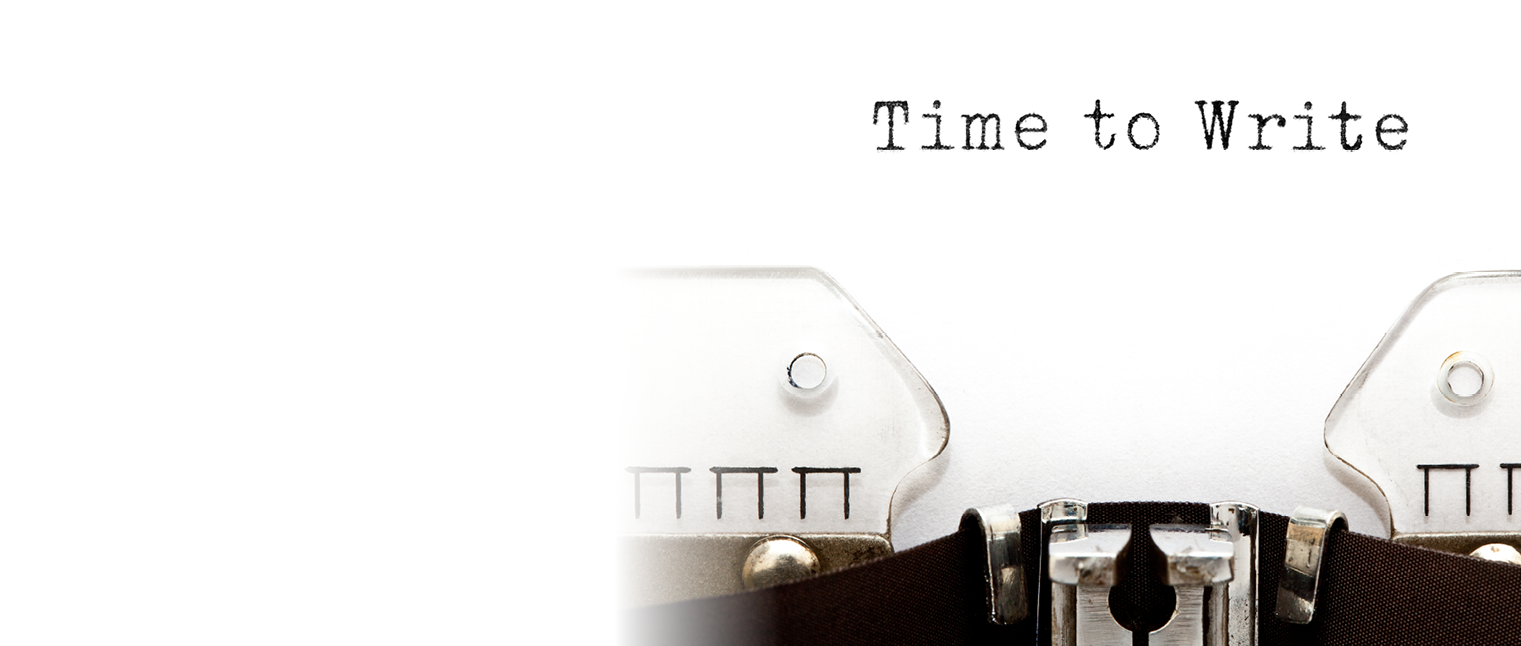
AccessLex Law School Scholarship Databank – Writing Competitions
A scholarship can make all the difference..
Search over 800 carefully curated and vetted scholarship opportunities and writing competitions — totaling more than $3 million in aid.
Writing Competitions
Award amount.

- Up to $5,000 (79)
- $5,001 to $10,000 (3)
- $10,001 to $15,000 (1)
- $15,001 + (0)
Application Deadline Month
- January (6)
- February (15)
- September (6)
- October (2)
- November (3)
- December (4)
- No Location Required (72)
- Alabama (0)
- Arizona (0)
- California (1)
- Colorado (0)
- Connecticut (0)
- Delaware (1)
- District of Columbia (0)
- Florida (0)
- Georgia (0)
- Illinois (0)
- Indiana (0)
- Kentucky (0)
- Louisiana (0)
- Maryland (0)
- Massachusetts (1)
- Michigan (1)
- Minnesota (0)
- Mississippi (0)
- Missouri (0)
- Montana (0)
- Nebraska (0)
- New Hampshire (1)
- New Jersey (2)
- New Mexico (0)
- New York (3)
- North Carolina (0)
- North Dakota (0)
- Oklahoma (0)
- Pennsylvania (1)
- Rhode Island (1)
- South Carolina (0)
- South Dakota (0)
- Tennessee (0)
- Vermont (0)
- Virginia (1)
- Washington (0)
- West Virginia (0)
- Wisconsin (0)
- Wyoming (0)
- Puerto Rico (1)
Applicant Attributes
- Affiliation (group, religion) (0)
- First Generation (0)
- Heritage (0)
- Indigenous/Native American (0)
- International (0)
- LGBTQIA (0)
- Mental Disability (0)
- Physical Disability (hearing, vision, mobility) (0)
- Racial/Ethnic Minority Group (0)
- Religious Affiliation (0)
- Underrepresented (0)
- Veteran (0)
Interest Area
- Business Law (8)
- Labor & Employment Law (6)
- Diversity & Inclusion (4)
- Civil Rights & Social Justice (3)
- Criminal Law (3)
- Entertainment & Sports Industries (3)
- Environment, Energy & Resources (3)
- Health Law (3)
- Intellectual Property (3)
- Professional Responsibility (3)
- Antitrust Law (2)
- Dispute Resolution (2)
- Government & Political Law (2)
- International Law (2)
- Rule of Law (2)
- Taxation (2)
- Affordable Housing & Community Development Law (1)
- Alcohol Law (1)
- Artificial Intelligence (1)
- California Legal History (1)
- Constitutional Law (1)
- Disability Rights (1)
- Family Law (1)
- Federalism (1)
- Food and Drug Law (1)
- Judicial Division (1)
- Law Library (1)
- Law Practice (1)
- Liability and COVID-19 (1)
- Litigation (1)
- Public Contract Law (1)
- Public Law (1)
- Reproductive Rights (1)
- Science & Technology Law (1)
- Administrative Law and Regulatory Practice (0)
- Air & Space Law (0)
- Children & the Law (0)
- Communications Law (0)
- Community Service (0)
- Construction Law (0)
- Domestic & Sexual Violence (0)
- Education Law (0)
- Foreign Policy (0)
- Immigration (0)
- Infrastructure and Regulated Industries (0)
- Juvenile Justice & Advocacy (0)
- Land Use (0)
- Law & Aging (0)
- Leadership (0)
- Native American Law & Tribal Governance (0)
- Personal Injury (0)
- Practice Management (0)
- Pro Bono Work (0)
- Public Interest Law (0)
- Real Estate Law (0)
- Real Property, Trust & Estate Law (0)
- Social Justice (0)
- Tort Trial & Insurance Practice (0)
- Transportation (0)
- Victim Advocacy (0)
Essay Requirements
- Not Required (0)
- Yes (length not specified) (3)
- Yes - Less than 500 words (up to 1 page) (4)
- Yes - 501-1000 words (1-2 pages) (1)
- Yes - 1001-1500 words (2-3 pages) (1)
- Yes - 1501-2000 words (3-4 pages) (0)
- Yes - 2001 - 2500 words (4-5 pages) (2)
- Yes - More than 2500 words (5+ pages) (72)
Merit Based
Transcript required, zimmerman law firm scholarship for law students.
Reflect on your "why". For this scholarship, you will reflect on why you committed to law school and what you plan on doing with your Juris Doctorate once you graduate.
Zimmerman Law Firm
Enrolled or accepted into an ABA-accredited law school in the United States.
May not be offered this year - verify status with the scholarship provider
Justice Ruth Bader Ginsburg "Pursuit of Justice" Legal Writing Competition
The Bar Association recognizes the importance of excellence in legal writing and seeks to award a student enrolled in an ABA-approved Philadelphia-area law school for authoring a top-quality competition submission.
Philadelphia Bar Association
Current 2nd or 3rd year law student
Full-time and part-time
In good standing
Attend one of the following six institutions: Drexel University Thomas R. Kiline School of Law, University of Pennsylvania Carey Law School, Rutgers Law School, Temple University Beasley School of Law, Villanova University Charles Widger School of Law and Widener University Delaware Law School
NYSBA Business Law Section Student Writing Competition - Fall Issue
The Business Law Section sponsors an annual Student Writing Competition, open to all students who are candidates for the JD or LLM degree at an accredited law school during the year in which the article is submitted.
New York State Bar Association (NYSBA) Business Law Section
Current J.D. or LL.M. candidate
Attend accredited law school
Corporate Governance Writing Competition
Established by the Ohio State Bar Association Corporate Counsel Section to explore relevant and innovative scholarly work from Ohio’s law students in one specific area of corporate governance challenges.
Ohio State Bar Association (OSBA) Corporate Counsel Section
All students at ABA-accredited law schools in Ohio
2024 Beckley Student Writing Competition
The purposes of the competition are to promote greater interest in and understanding of the fields of securities arbitration and securities law and to encourage excellent legal writing skills in law students.
Public Investors Arbitration Bar Association (PIABA)
Current law student
Attend law school in U.S.
Full-time non-law students who write law-related papers as part of a course at an American law school
Law Student Writing Challenge
Students are asked to write a paper analyzing the tax-related issues in connection with a pre-selected question. The Taxation Section selects a questions in personal income taxation or ethical areas.
State Bar of Michigan (SBM) Taxation Section
Current law students
Full-time or part-time
Attend ABA-accredited law school that is located in the State of Michigan
2024 International Tax Student Writing Competition
The organization is sponsoring a writing competition on any topic relating to US taxation of income from international activities, including taxation under US tax treaties.
International Fiscal Association (USA Branch)
Graduate level student (J.D., LL.M., SJ.D., MST, MTA, MT or similar)
BPLA Writing Competition
Law school students are encouraged to submit papers relating to intellectual property law.
Boston Patent Law Association (BPLA)
Attend a law school (day or evening) within the jurisdiction of the First Federal Judiciary Circuit (Maine, Massachusetts, NH, Puerto Rico, Rhode Island) or prepared in connection with a course at a law school in the First Circuit
Public Contract Law Journal Writing Competition
Through our writing competition, the PCL Section introduces itself to the next generation of public contract lawyers.
American Bar Association (ABA) Public Contract Law (PCL) Section
Current J.D. students, who is 21 years old or over
Attend ABA-approved law school within the U.S. and its possessions
Current members in good standing of the American Bar Association (ABA) and the Section of Public Contract Law
U.S. Citizen or Legal Permanent Resident
Judicature Writing Competition for Emerging Scholars—Judges, Judicial Administration, and Rule of Law Topics (Duke Law)
Judicature, the only scholarly publication focused on the judiciary, offers an annual award and publication opportunity for an outstanding article on judges, judging, judicial administration, or the rule of law. Judicature is published by Duke Law and goes out to all federal judges, all state high court judges, numerous state appellate and specialty courts, academics, and practitioners.
Please submit an article of no more than 6,000 words on the topic of judges, judging, judicial administration, or the rule of law. Email submissions to [email protected] with the subject line “Writing Contest Submission.” The essay with identifying information should include full name, phone number, email address, mailing address, law school, and graduation year.
Duke Law--Bolch Judicial Institute--Judicature
3Ls and recent graduates.
U.S. citizen or permanent resident
Only single-author works will be accepted, and only one entry will be accepted per person.
Sarah Weddington Writing Prize
The Sarah Weddington Writing Prize seeks student scholarship exploring reproductive rights and justice issues in the U.S.
If/When/How, the Center for Reproductive Rights, and the Center on Reproductive Rights and Justice
Current J.D. or LL.M. law students
Recent graduates
American College of Consumer Financial Services Lawyers (ACCFSL) Writing Competition
The competition seeks to recognize written contributions to the field of U.S. consumer financial services law.
American College of Consumer Financial Services Lawyers
Albert S. Pergam International Law Writing Competition
The competition is intended to encourage students of law to write on areas of public or private international law.
New York State Bar Association (NYSBA) International Law Section
J.D., LL.M., Ph.D. and SJ.D.
Dr. Emanuel Stein and Kenneth Stein Memorial Law Student Writing Competition
To recognize excellence among law school students writing in the area of labor and employment law; and to cultivate the relationship between the Section and future labor and employment practitioners.
New York State Bar Association (NYSBA) Labor and Employment Law Section
American Journal of Mediation National Dispute Resolution Writing Competition
The purpose of this competition is to heighten interest in, and competence related to, student writing on the subject of Alternate Dispute Resolution.
American Academy of Civil Trial Mediators (ACCTM)
Current North American J.D. and LL.M. candidates
The Dukemineier Awards Student Writing Competition
The Dukeminier Awards Student Writing Competition annually recognizes the best law review note written by a student in the field of sexual orientation and gender identity law.
Williams Institute at the UCLA School of Law
Enrolled in a law school within the U.S. or its territories
Insurance Law Section State Bar of Texas Law Student Writing Competition
This competition is designed to encourage law students at eligible Texas schools to write scholarly papers on topics of interest relevant to insurance law.
State Bar of Texas Insurance Law Section
Attending specific Texas law schools
Armstrong Lee & Baker Law School Contest
This scholarship requires that you reflect on your purpose for entering the field of law.
Armstrong Lee & Baker
Enrolled at an ABA-accredited law school.
If you have applied to a law school and have not been accepted yet, you may apply for the scholarship, however, the scholarship will be awarded to a student who has successfully enrolled at an ABA-accredited law school .
Entertainment Law Initiative Writing Competition
The Entertainment Law Initiative fosters future careers in entertainment law by seeking out the nation’s top law students and giving them invaluable networking and educational opportunities. The program includes a national legal writing competition.
The Recording Academy and Entertainment Law Initiative
Current J.D. and LL.M. candidates
U.S. law school
Phil Cowan - Judith Bresler Memorial Scholarship
The Phil Cowan - Judith Bresler Memorial Scholarship is named after two esteemed former EASL Chairs to recognize student who are committed to a practice concentrating in one or more areas of entertainment, art or sports law.
New York State Bar Association (NYSBA) Entertainment, Arts and Sports Law Section
Attend accredited law school within New York State, Rutgers University Law School and Seton Hall Law School in New Jersey, and up to ten other accredited law schools throughout the country to be selected, at the committee's discretion, on a rotating basis.
Law Student Writing Competition
The scope of permissible topics include any aspect of workers' compensation law.
The College of Workers' Compensation Lawyers
Current student
Enrolled in accredited law school in U.S.
2023 graduates
Louis Jackson Memorial National Student Writing Competition in Employment and Labor Law
Judges will consider papers on any topic relating to the law governing the workplace, such as employment law, labor law, employee benefits, or employment discrimination.
IIT Chicago-Kent College of Law's Institute for Law and the Workplace (ILW) and Jackson Lewis LLP
Enrolled in an accredited law school
Must have completed or be currently taking course work in employment or labor law
Robert T. Matsui Annual Writing Competition
Through this Writing Competition, AEF seeks to encourage legal scholarship on issues of importance to the Asian Pacific American community.
Asian Pacific American Bar Association Educational Fund (AEF)
Law school graduates within the last five years (i.e., 2019 or later)
In the U.S.
Litigation Section Writing Award
This annual law student scholarship program focuses on recognizing outstanding writing on a litigation-related topic. The program is intended to encourage students to pursue a career in litigation and to become active in the Ohio Bar.
Enrolled in an Ohio accredited law school.
A student member of the Ohio State Bar Association (membership is free).
Donald C. Alexander Tax Law Writing Competition
The Federal Bar Association Section on Taxation sponsors an annual writing competition and invites law students to participate.
Federal Bar Association (FBA) Taxation Section
Current J.D. or LL.M. students
Accredited law school
Full-time and Part-time
Rule Of Law Competition
The Beverly Hills Bar Association and Bar Foundation and have been closely tied to Rule of Law issues. This competition encourages law students to integrate Rule of Law concepts into their writings.
The Beverly Hills Bar Association and Bar Foundation
Current J.D. and LL.M. students
Enrolled at ABA or California state accredited law school
Ed Mendrzycki Essay Contest
This essay contest is to encourage scholarship and innovative research and writing in the area of legal malpractice law, professional liability insurance, and loss prevention.
American Bar Association (ABA) Standing Committee on Lawyers' Professional Liability and Long & Levit LLP
ABA Law Student Division member in good standing
ABA Young Lawyers Division member in good standing
National Essay Contest
This national academic event is intended to foster debate, analysis, and examination of state alcohol regulation in the 21st Century.
Center for Alcohol Policy
All persons over the age of 18 as of December 2023
Students, academics, practicing attorneys, policymakers, regulators, public health representatives, and any person with an interest in alcohol law and policy are encouraged to submit essays.
Constance Baker Motley National Student Writing Competition
The American Constitution Society welcomes all papers furthering and promoting a progressive vision of the Constitution, law, and public policy. Entrants are encouraged to view this topic broadly, and we welcome submissions on a variety of substantive areas.
American Constitution Society (ACS) and the University of Pennsylvania Law School ACS Chapter
Dues paying member of ACS
Richard D. Cudahy Writing Competition on Regulatory and Administrative Law
This writing competition seeks to encourage and reward the qualities demonstrated by Judge Richard D. Cudahy in the fields of regulatory and administrative law, and an appreciation of the public impact of doctrinal and institutional choices, including the consequences for fundamental values such as fairness, participation, and transparency in the scholarship of others.
American Constitution Society (ACS)
Current Law Students
Enrolled in a J.D. or LL.M. program at a U.S. law school
Baxter Family Competition on Federalism
The overarching goal of this prestigious bi-annual competition, which is run by the Peter MacKell Chair in Federalism, is to advance research and foster informed debate on federalism.
McGill University Faculty of Law
Current undergraduate or graduate
Enrolled in program in law or political science
Graduates from these programs after 2/6/2023
Anywhere in the world
Mendes Hershman Writing Contest
The Mendes Hershman Student Writing Contest is a highly regarded legal writing competition that encourages and rewards law students for their outstanding writing on business law topics.
American Bar Association (ABA) Business Law Section
Current J.D. student
Enrolled in an ABA-accredited law school
21 years old
Legal resident of U.S.
Consumer Protection Committee Law Student Essay Contest
This project provides an opportunity to expand the role of the ABA in the area of Consumer Protection among law students, professors and practitioners by inviting students to participate in a discussion on hot topics in consumer protection.
American Bar Association (ABA) Antitrust Section Consumer Protection Committee
2nd and 3rd year law students
At least 21 years of age
Legal resident of the U.S.
Harvard Law School Trans Rights Writing Competition
HLS Lambda, Harvard Civil Rights–Civil Liberties Law Review, and the Harvard Journal of Law & Gender are seeking submissions that broadly address trans rights issues.
Harvard Law School Lambda, Harvard Civil Rights-Civil Liberties Law Review, and the Harvard Jounral of Law and Gender
Currently matriculated law students from any law school.
NYSBA Business Law Section Student Writing Competition - Spring Issue
Robert pitofsky law student writing competition.
The goal of the Competition is to encourage and reward law student writings on antitrust law and competition law subjects of general and current interest.
American Bar Association (ABA) Antitrust Section
Current law school student in good standing
Over the age of 21
Attending an ABA accredited law school within the United States and its possessions
Honorable William C. Conner Writing Competition
The Honorable William Conner Writing Competition was established to recognize exceptionally written papers that are submitted by law students.
New York Intellectual Property Law Association
Current J.D. or LL.M. student
Day or evening
Accredited law school in the U.S.
David S. Rosenbaum Writing Competition
A scholarship to encourage and reward students interested in the field of interactive entertainment law.
Video Game Bar Association (VGBA)
None currently listed at time of publication. Visit provider's website for possible updates.
American Indian Law Review Writing Competition
Papers will be accepted on any legal issue specifically concerning American Indians or other indigenous peoples.
American Indian Law Review (AILR)
Current J.D. or graduate law students
Accredited law schools in the U.S. and Canada
NRA Civil Rights Defense Fund Law Student Research and Writing Competition
Research and write a scholarly article suitable for publication on one of two cutting edge Second Amendment issues - or you can write separately on both questions for two chances to win.
NRA Civil Rights Defense Fund
Currently enrolled in an ABA accredited law school.
Artificial Intelligence Writing Competition
The Center for Legal and Court Technology (CLCT) is pleased to announce its fourth annual writing competition dedicated to innovative legal issues likely to arise from Artificial Intelligence, the Internet of Things, and/or related technologies.
Center for Legal & Court Technology (CLCT)
Current J.D., LL.B., LL.M., S.J.D., J.S.D., Ph.D. student - full-time or part-time
Attend ABA-accredited law school within the U.S.
Foreign law school with equivalent accreditation
The Blanch Law Firm Scholarship Award
We are looking for an excellent writer to contribute an outstanding article to our online publication.
The Blanch Law Firm
Open to all students
Rolling deadline. Submissions due within 14 days of receipt of assignment.
Affordable Housing & Community Development Law Student Legal Writing Competition
The goal of the competition is to encourage law students to become involved in the Forum. It is also intended to attract students to the affordable housing, community development or pro bono practice fields, and to encourage scholarship in these fields.
American Bar Association Forum on Affordable Housing and Community Development Law
Attend ABA-accredited school
Member of the ABA and the Forum
At least 21 years old
The Roy Snell Health Care Regulatory & Compliance Writing Competition
The Roy Snell Health Care Regulatory & Compliance Writing Competition recognizes law students for innovative, strategic, and sound approaches to tackling complex contemporary health care regulatory and compliance issues.
Health Law Institute at Mitchell Hamline School of Law and the Health Care Compliance Association
Current J.D. Students who have completed 1L year
Full or part-time
Registration will occur approximately a month and a half prior to the deadline; review details on provider's website carefully.
Trandafir Writing Competition
Each year, Transnational Law and Contemporary Problems, in conjunction with the University of Iowa College of Law International and Comparative Law Program, conducts an annual world affairs student writing competition.
Transnational Law and Contemporary Problems and the University of Iowa College of Law
Currently enrolled in law or graduate degree programs.
White River Environmental Law Writing Competition
The White River flows through the village of South Royalton and borders the campus of Vermont Law School. The idyllic waterway embodies the Journal’s view of the field of environmental law.
Vermont Journal of Environmental Law and Vermont Law School
Attend accredited law school in the U.S.
Prize in International Insolvency Studies
The III Prize is awarded for original legal research, commentary or analysis on topics of international insolvency and restructuring significance and on comparative international analysis of domestic insolvency and restructuring issues and developments.
International Insolvency Institute (III)
Undergraduate or Graduate students
Researchers or practitioners in practice for less than five years
Berkeley Technology Law Journal Writing Competition
We will accept submissions from graduate-level law students on a wide variety of topics at the intersection of law and technology, including but not limited to: technology and the public interest, privacy, internet law, intellectual property, antitrust, First Amendment issues, entertainment and news media, telecommunications, biotechnology, and cybercrime.
Berkeley Technology Law Journal University of California, Berkeley School of Law
Current J.D., LL.M. and J.S.D. students
Law students outside the U.S.
Howard C. Schwab Memorial Essay Contest
The purpose of the contest is to create greater interest in the field of family law among all law students, and particularly the Law Student Division of the American Bar Association.
American Bar Association (ABA) Family Law Section
J.D. students
ABA-approved law school
Second or third year full-time students or second through fourth-year part-time students
First-year students enrolled in schools where family law is part of the first-year curriculum
The Program on Church, State & Society Writing Competition
The purpose of this writing competition is to encourage scholarship related to the intersection of church, state & society, and in particular how the law structures and governs that intersection.
The Program on Church, State & Society at Notre Dame Law School
J.D., LL.B., LL.M., SJ.D., J.S.D., Ph.D.
Attend an ABA-accredited law school within the U.S.
| The Annual International Berkeley Undergraduate Prize for Architectural Design Excellence 2022 | |





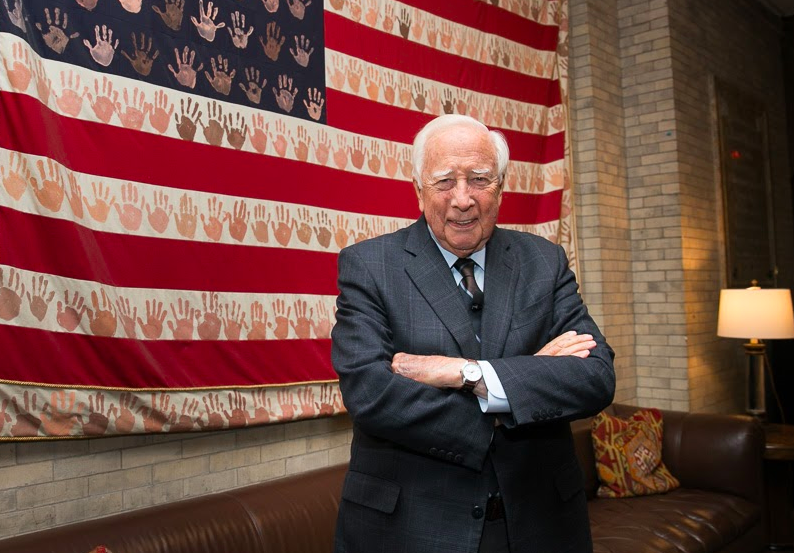
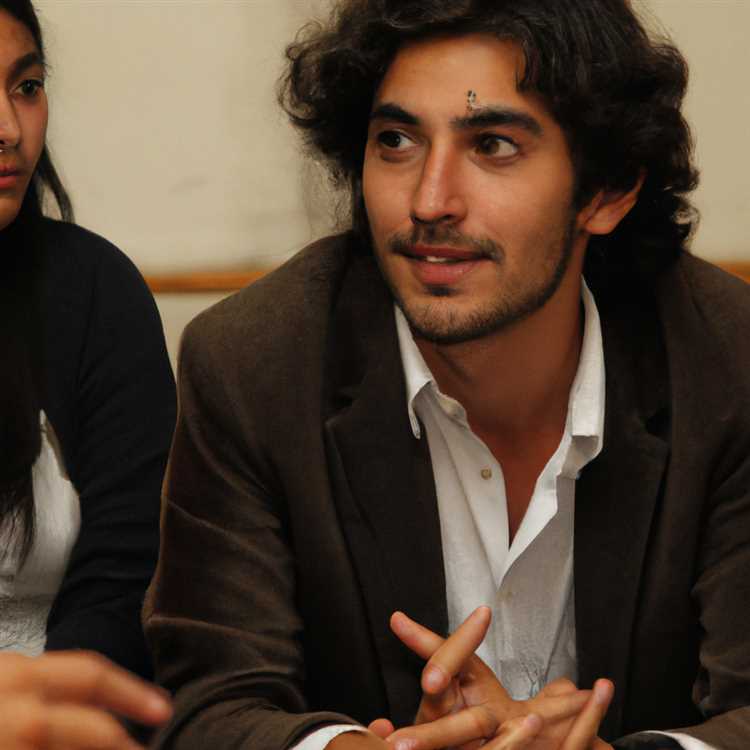
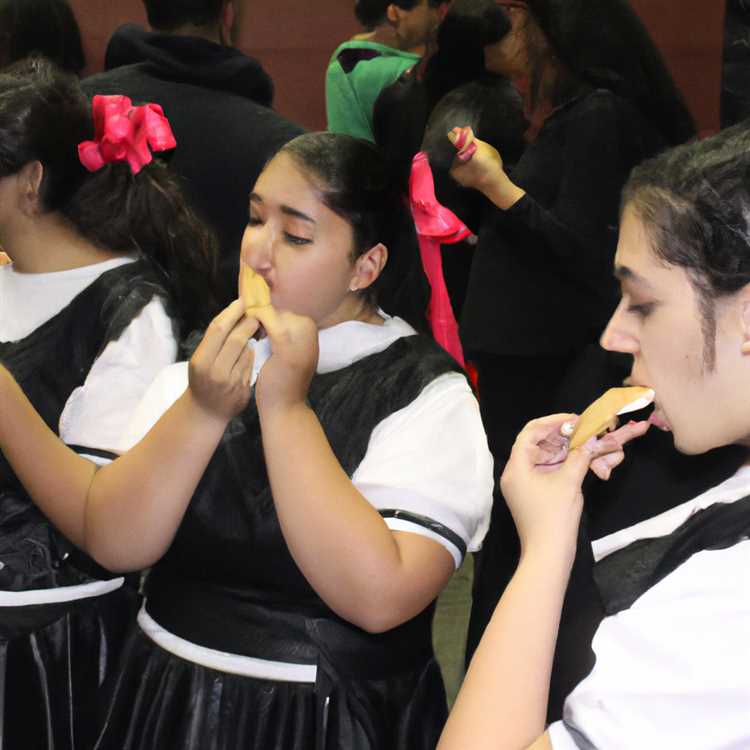










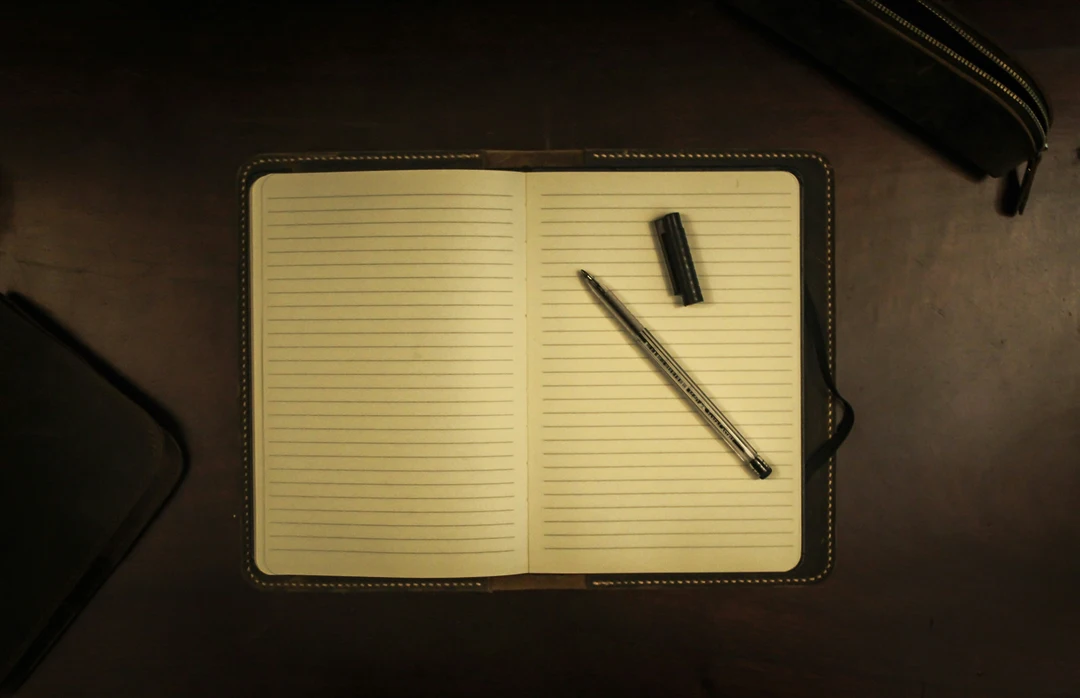


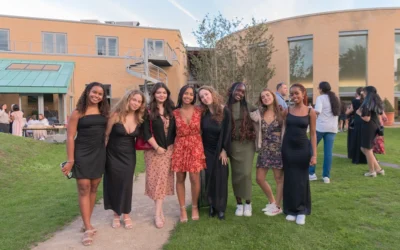
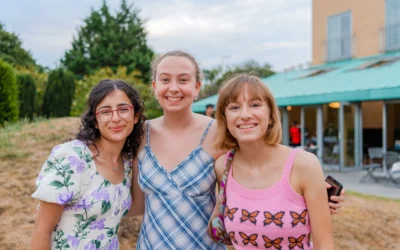
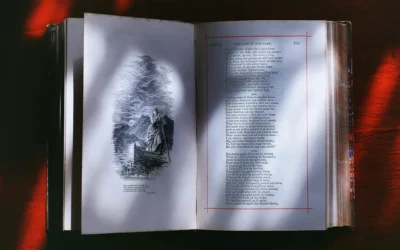



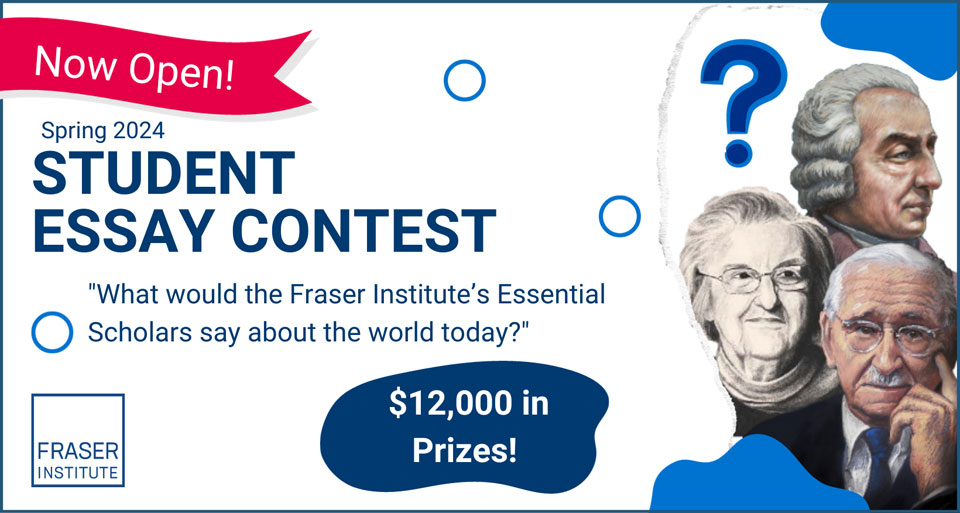
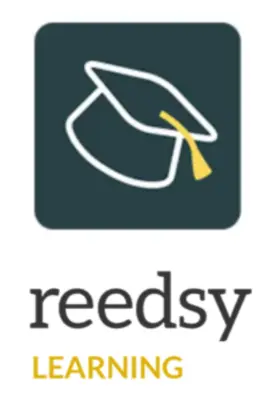






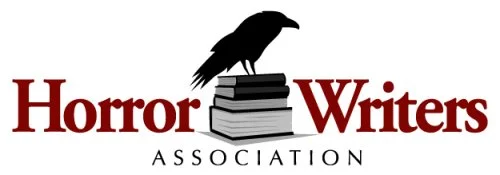
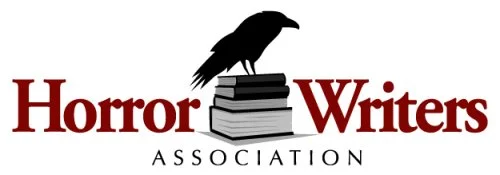
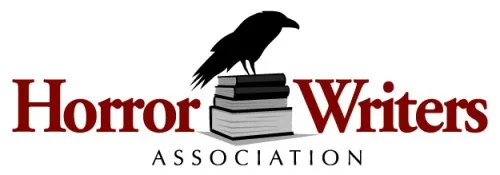
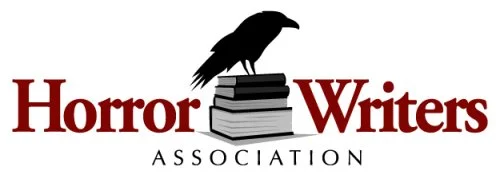
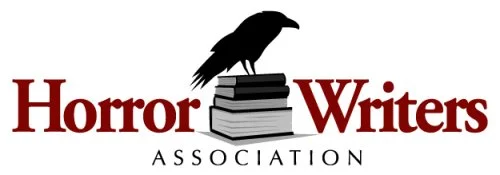
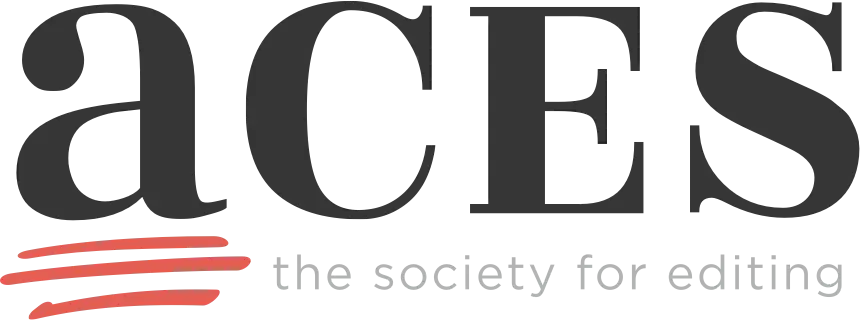
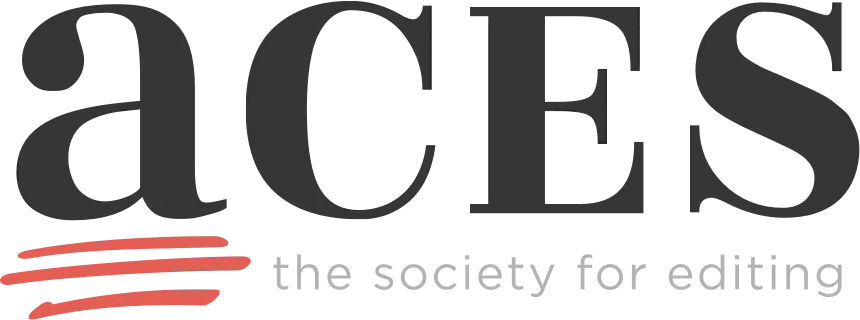
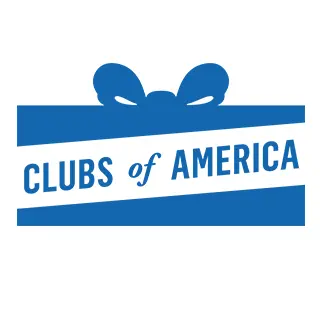


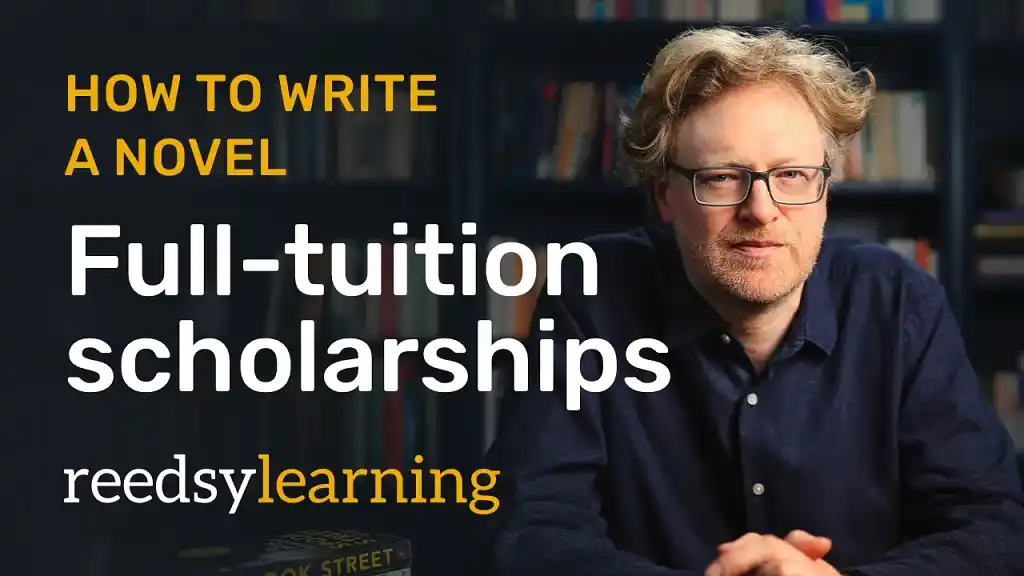







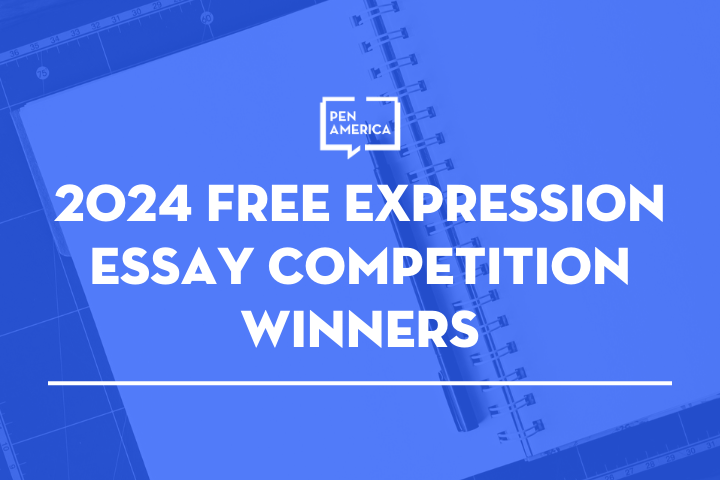
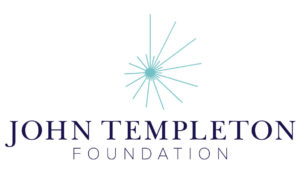







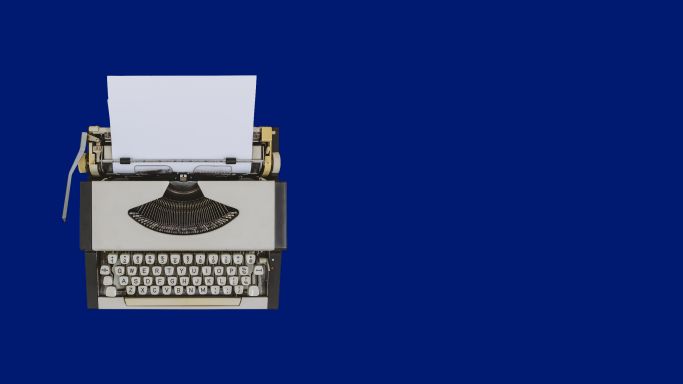
IMAGES
VIDEO
COMMENTS
Discourse, debate, and analysis Cambridge Re:think Essay Competition 2024 This year, CCIR saw over 4,200 submissions from more than 50 countries. Of these 4,200 essays, our jury panel, consists of scholars across the Atlantic, selected approximately 350 Honourable Mention students, and 33 award winners. The mission of the Re:think essay competition has always been to encourage critical […]
The Contest. Inspired by our growing high school readership around the world, we have run the Harvard International Review Academic Writing Contest since 2020 to encourage and highlight outstanding high school writing on topics related to international affairs.
Genres: Fiction, Non-fiction, Poetry, and Script Writing. Welcome to the 2024 Porter Fleming Literary Competition, now in its twenty-ninth year of recognizing outstanding writing and writers. The competition honors the memory of Porter Fleming, one of Augusta, Georgia's leading citizens and foremost philanthropists.
Genres: Essay, Fiction, Flash Fiction, Non-fiction, Poetry, and Short Story. Bacopa Literary Review's 2024 contest is open from March 4 through April 4, with $200 Prize and $100 Honorable Mention in each of six categories: Fiction, Creative Nonfiction, Flash Fiction, Free Verse Poetry, Formal Poetry, and Visual Poetry.
The Harvard Law Review is composed of second- and third-year law students who are selected via a six-day writing competition at the end of each academic year.The Review strongly encourages all students to participate in the writing competition, which consists of two parts:. Subcite: this portion, worth 50% of the competition score, requires students to perform a technical and substantive edit ...
Girton College, Cambridge's Humanities Writing Competition. Aimed at giving Humanities applicants an insight into research at university level - candidates expected to produce extensively researched, clearly written and well-referenced essays ranging well beyond the set curriculum. This essay is a great way to extend your knowledge and ...
The Harvard Crimson Global Essay Competition provides a platform for young, ambitious high school students to exercise their writing skills and compete with students from all over the world! This competition encourages students to challenge themselves and explore different writing styles to ultimately strengthen their writing skills.
The purposes of the competition are to promote greater interest in and understanding of the fields of securities arbitration and securities law and to encourage excellent legal writing skills in law students. More. Sponsoring Organization: Public Investors Arbitration Bar Association (PIABA) Award Maximum: $1,500. Application Deadline:
February 1, 2022. (Stage Two) Essay Semifinalists' 2,500-word essays due. February 8, 2022. Launch of Community Service Fellowship Competition for Essay Semifinalists. Early-March, 2022. Essay Finalists announced. March 12, 2022. Community Service Fellowship proposals due. Mid-April, 2022.
About the Contest. The CFGL International Research Competition is an research essay competition in which students outside the USA receive the opportunity to showcase their analytical, research, and writing skills in the form of a multi-page, persuasive research paper. Objective.
This contest is named in memory of David McCullough (1933-2022)—a Pulitzer Prize-winning historian and Gilder Lehrman Life Trustee—and honors his career telling America's stories and examining its histories. ... Research Essay: Students are invited to submit a research essay incorporating primary and secondary sources on a topic in ...
We invite students to choose an issue or question in science, technology, engineering, math or health, then write an engaging 500-word explanation. Contest Dates: Jan. 18 - Feb. 15, 2023.
Additional prizes: Coaching, interview, and editorial support. 💰 Entry fee: $35. 📅 Deadline: July 15, 2024. Discover the finest writing contests of 2024 for fiction and non-fiction authors — including short story competitions, essay writing competitions, poetry contests, and many more.
We invite students to choose an issue or question in science, technology, engineering, math or health, then write an engaging 500-word explanation. Contest Dates: Feb. 2 to March 9, 2022.
Use credible sources such as academic journals, books, and reputable websites to gather information and support your arguments. Tip 1: Utilize library resources to access scholarly articles and books that delve into your topic. Tip 2: Take notes and organize your research findings to structure your essay effectively. Tip 3:
Age: 13-15. Registration opens: now open. Competition dates: 1-17 May 2024. The Biology Challenge is a fun, annual competition open to students aged 13-15 in the UK. The challenge compromises of two, 25-minute, multiple-choice papers, and students need to complete both papers to be considered for an award category.
Competition briefs might even introduce you to a new subject area you'd like to pursue beyond the competition, in future degrees, research or career paths. IV. Scholarships and awards. Many writing competitions offer scholarships, cash prizes or publication opportunities as incentives for participants.
Eligibility requirements in 2024 Competition include: "All submissions must be composed of original research and writing by currently enrolled law students at ABA accredited law schools. Law school notes and academic articles that you have submitted or you are planning to submit to law school reviews and journals for publication are eligible ...
The Fraser Institute hosts an annual Student Essay Contest to promote student participation in economic discourse on current events and public policy. This contest affords students the opportunity to have their work peer-reviewed and published early on in their academic career. In addition, we offer exciting cash prizes for the top five winning submissions!The Fraser Institute's 2024 Student ...
5. 2024 Essay Contest - High School Category. Open to: Grades 9-12 students who are attending a public or private school or reside in Washington, D.C., or Montgomery County, MD. An updated list of free-to-enter writing contests—short story, flash fiction, poetry, essays, songwriting, articles, feature articles, interviews and memoirs.
For research purposes, a writing competition is organized to attract a large number of entries about a certain topic. Obviously, the topic itself must interest the target population, and the target population be large enough to elicit a sufficient number of entries. The first challenge was how to disseminate
LearnCurious is proud to introduce the annual competition for the Phyliss J. McCarthy Scholarship for Excellence in Writing. In 3,000 words or fewer, applicants must respond to one of three creative prompts. ... an endowed fund providing grants for research and writing nonfiction relating to horror and dark fantasy literature. The Fund will ...
More competition details can be found here. From now on, all cash rewards for competition winners will be $2000, and we will cut the delay between article submission and cash reward to under two weeks. This way authors can be compensated immediately for their contributions. There will be a minimum of 3 winners but we expect and hope for more.
The fMRI Writing Prize contest, which runs through July 31, is for a piece of original, unpublished "flash fiction" or a very short story of between about 500 and 1,500 words. It is open to ...
2024 Free Expression Essay Competition Winners. PEN America is excited to announce the winners of our third annual Free Expression Essay Competition.. Over 200 high school and college students wrote in to tell us what free expression means to them, addressing a wide range of topics like protest rights, book bans, the history of free speech, and personal experiences with censorship.
Welcome to the fifth week of our 15th Annual Summer Reading Contest. ... How you submit your entry depends on your age and whether you are responding via writing or video.
A guide to this year's wine writing competition on unforgettable wine moments.. The judges and I are all very excited about the entries that have been selected for publication in the coming weeks. We have been astounded by how varied, innovative, clever and powerful so many of these 214 submissions have been and are so grateful to all the entrants for sharing their stories this year.
DG Translation translates texts for the European Commission into and out of the EU's 24 official languages, and a few others when needed. Only texts are translated.